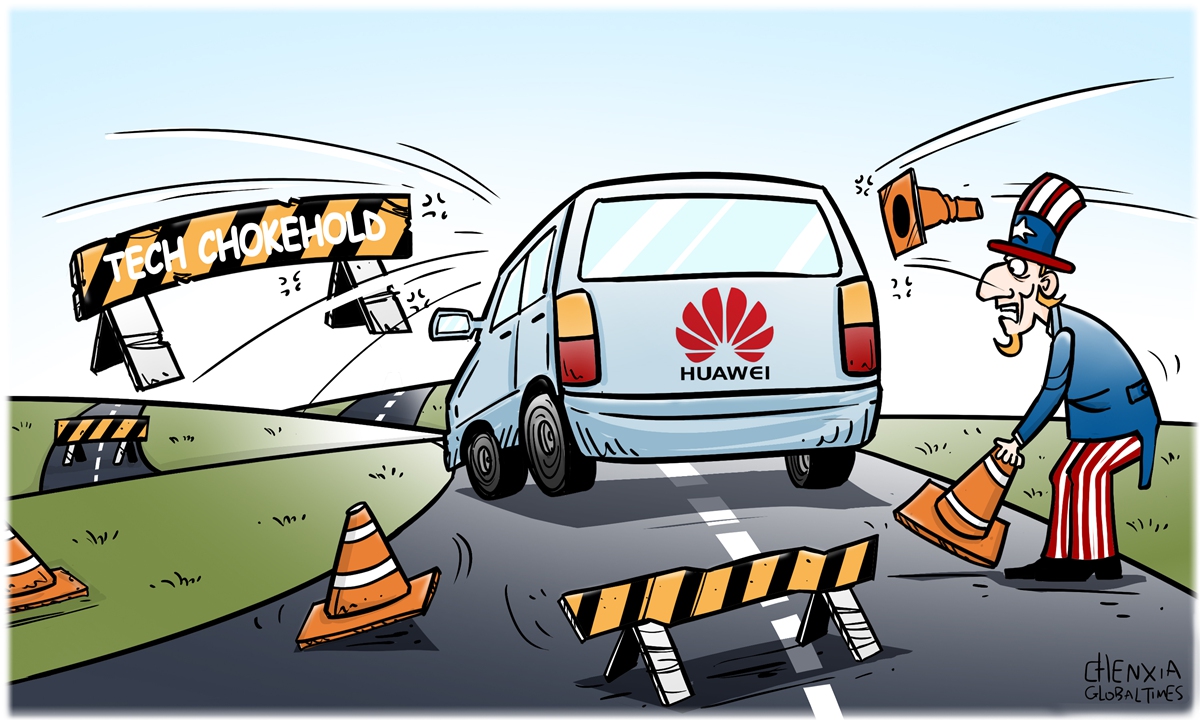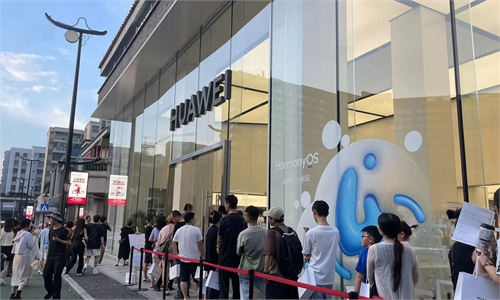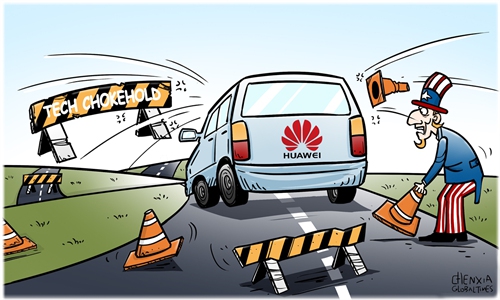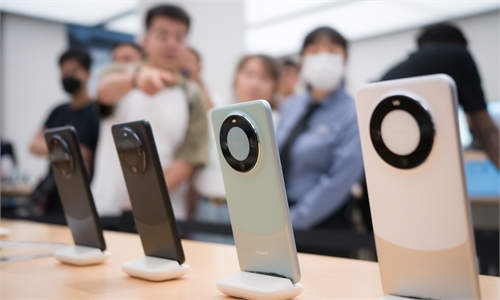
Breaking through barriers. Illustration:Chen Xia/GT
The South China Morning Post (SCMP) published an article on Wednesday saying two physicists at Stanford University had expressed pessimism over the future of the US-China Science and Technology Agreement (STA), given the intense anti-China political sentiment in Washington.The physicists, who collected signatures from 1,000 scientists and scholars at US universities, have called on the US government to renew the deal. We can only hope that their "petition" will awaken some people in Washington.
The US government extended for six months the symbolic agreement to cooperate with China in science and technology, which was due to expire on August 27. However, this "does not commit the US to a longer-term extension," a State Department spokesperson told Reuters in August. According to the SCMP report, some US lawmakers opposed an extension, citing fears such as intellectual property theft.
What those US lawmakers are not aware of is that renewal of the deal would be beneficial to the US. They should reflect on their shortsightedness.
The distorted US view of China's technological progress is the main culprit in undermining bilateral scientific and technological cooperation. For example, Huawei's latest flagship mobile phone, Mate 60 Pro, recently shocked American politicians who didn't understand how the country would have the technology to make high-end chips after sweeping efforts by the US to restrict China's access to foreign chip technology.
Many politicians in Washington follow this ridiculous logic. They believe China cannot make high-end chips on its own. Therefore, if these cutting-edge technologies can't be legally imported from the US or its allies, then they are "stolen." It's a bit ironic that after the release of Huawei's mobile phone, some US politicians failed to reflect on the futility of US export bans on China, but instead focused on finding loopholes in export restrictions and trying to prevent Chinese companies from using them to "steal" US technology. This reflects the arrogant mentality of US political elites, who ignore the progress of Chinese technology.
How does the US academic community view the issue of China's so-called intellectual property theft? In an August 24 letter, Peter Michelson of Stanford University and his colleague Steven Kivelson told US President Joe Biden that "cutting off ties with China would directly and negatively impact our own research."
Kivelson was quoted by the SCMP as saying that "in my field, which is the study of quantum materials, China has invested more than the US," so many of the experiments that his colleagues conduct will benefit from the discoveries made in China and freely available. "We benefit directly from that when lines of communication are open," he said.
One thing is clear: China-US technology cooperation is beneficial to the US. However, some politicians in Washington are addicted to hyping so-called intellectual property theft, using national security as an excuse to wantonly undermine technology cooperation, which will harm US technological development and innovation capabilities.
The US-China STA serves as an umbrella agreement for the science and technology relationship between the US and China. Renewing the STA is in the interests of the US. We hope that politicians in Washington can view China-US technology cooperation from an objective perspective, as well as its positive impact on the US economy, and abandon their arrogance and geopolitical mentality.
The US-China STA, signed in 1979, has been renewed every five years or so ever since. In the 1970s and 1980s, China's technology strength was relatively weak, so the US-China STA may have been more advantageous for China.
But today, with the rise of China's technological power, China-US technology cooperation has shifted toward being beneficial to the US. Technology cooperation is a big cake for the US economy. For example, without the US chip export ban, Huawei could have become an important buyer of US chips, driving the development of the US chip industry.
China is an important market for US technology products. Any behavior that disrupts China-US technology cooperation is a very shortsighted move.



